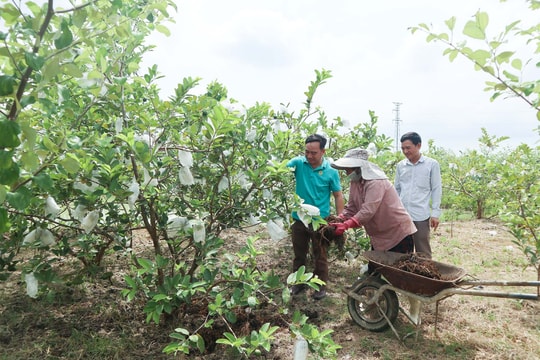Rice fields that say 'no' to toxic chemicals in Nghe An
There are not many “organic rice” fields that completely say no to toxic chemicals such as chemical pesticides, herbicides, etc., but they are gradually becoming a popular trend.
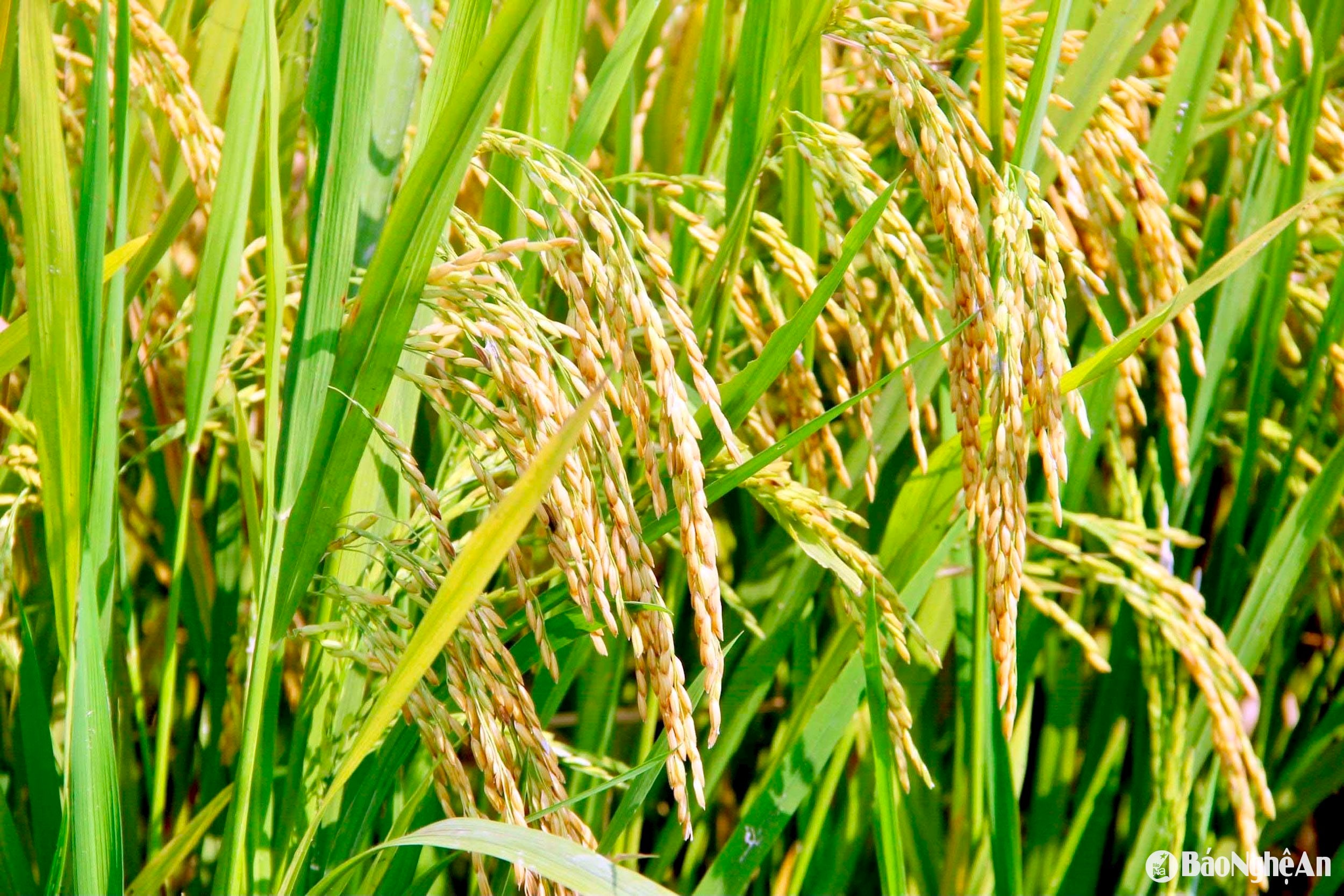
"Clean rice" fields
Starting to produce clean rice from 2022 on an area of 1 hectare of rice, but the Summer-Autumn crop of 2024 is the first crop that Mr. Nguyen Phuc Hung - owner of H2 Farm in Thach Son hamlet (Van Thanh commune, Yen Thanh district) produces according to the method of fertilizing only once during the entire crop. "Before, I completely used organic fertilizer, but each crop was still fertilized 3-4 times. Now switching to fertilizing once according to the guidance of the agricultural sector, I save a lot of costs while the yield and quality of rice are still stable or even higher," said Mr. Hung.
According to Mr. Hung, organic production initially had many difficulties, lower productivity, was not as convenient as conventional production, many tasks had to be done manually, so one had to be truly dedicated and determined, abandoning the production mindset of focusing on output and focusing on quality. In the first crop, his family's 1 hectare of rice yielded lower than conventional production, but from the second crop, it was equal and higher. And the greater benefit was ensuring health first of all for himself and then for consumers as well as protecting the living environment.
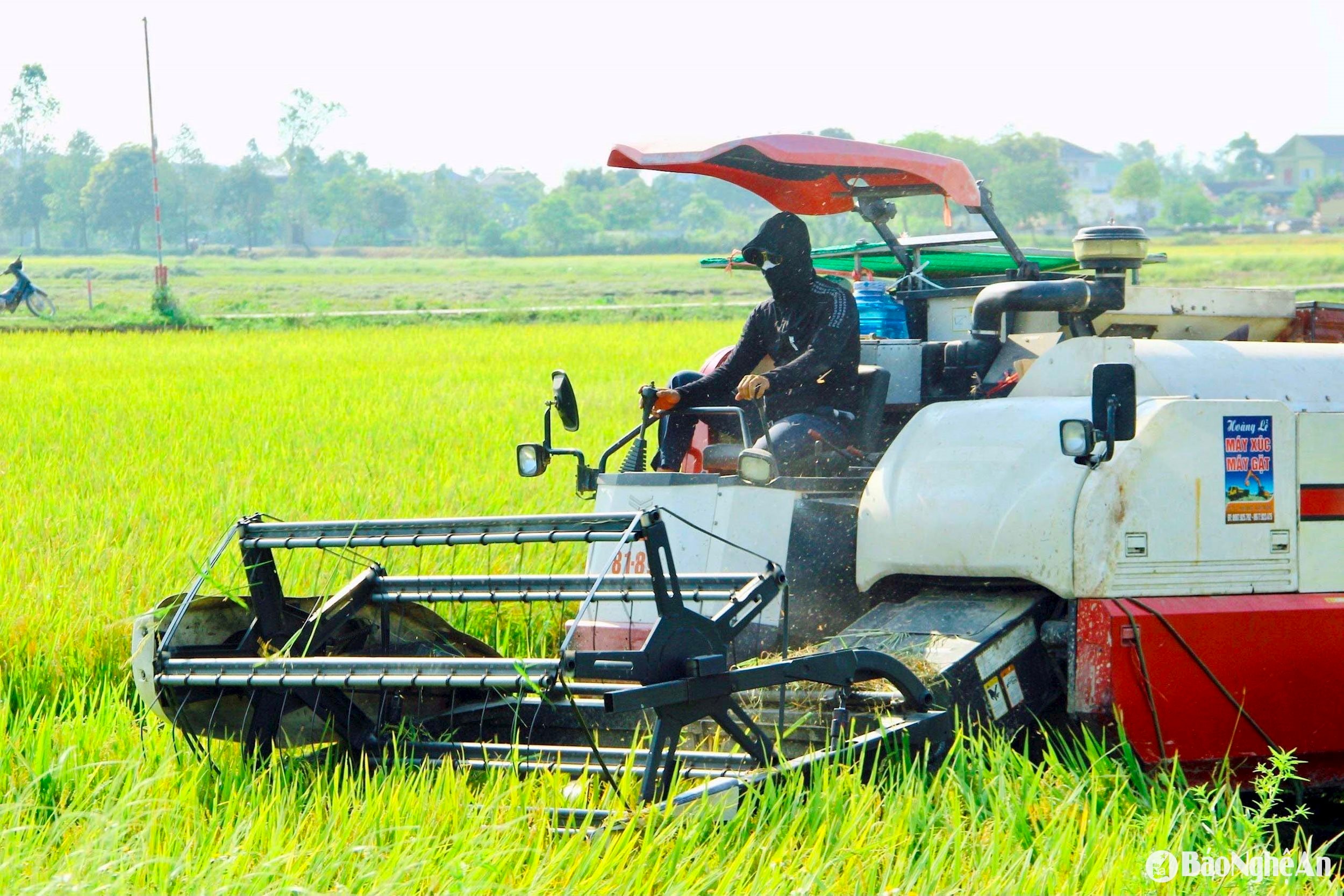
For many years, on her family's 1 sao of "rice and worm" field, like other households in the hamlet, Ms. Trinh Thi Lai in Chau Nhan commune (Hung Nguyen) has not sprayed chemical pesticides on the rice plants to keep the worm, but the rice still grows very well, has few pests and diseases and gives high yield, the selling price is also 2-3 prices higher than the market price but not enough to sell. From the advantage of those "rice and worm" fields, starting from the Spring crop of 2024, the Department of Science and Technology began implementing the Project of Applying Scientific and Technological Advances, building a model of raising worm combined with organic rice cultivation in Hung Nguyen district. On an area of 3 hectares in hamlet 8, Chau Nhan commune, 11 participating households were supported with 50% of rice seeds, organic fertilizers, and technical training.
According to Mr. Nguyen Quang Huy - Project Manager, although not spraying chemical pesticides, people still used chemical fertilizers in the past. The important difference when implementing and replicating this model is that people will only use organic fertilizers and biological pesticides of herbal origin, in accordance with the organic rice production process.
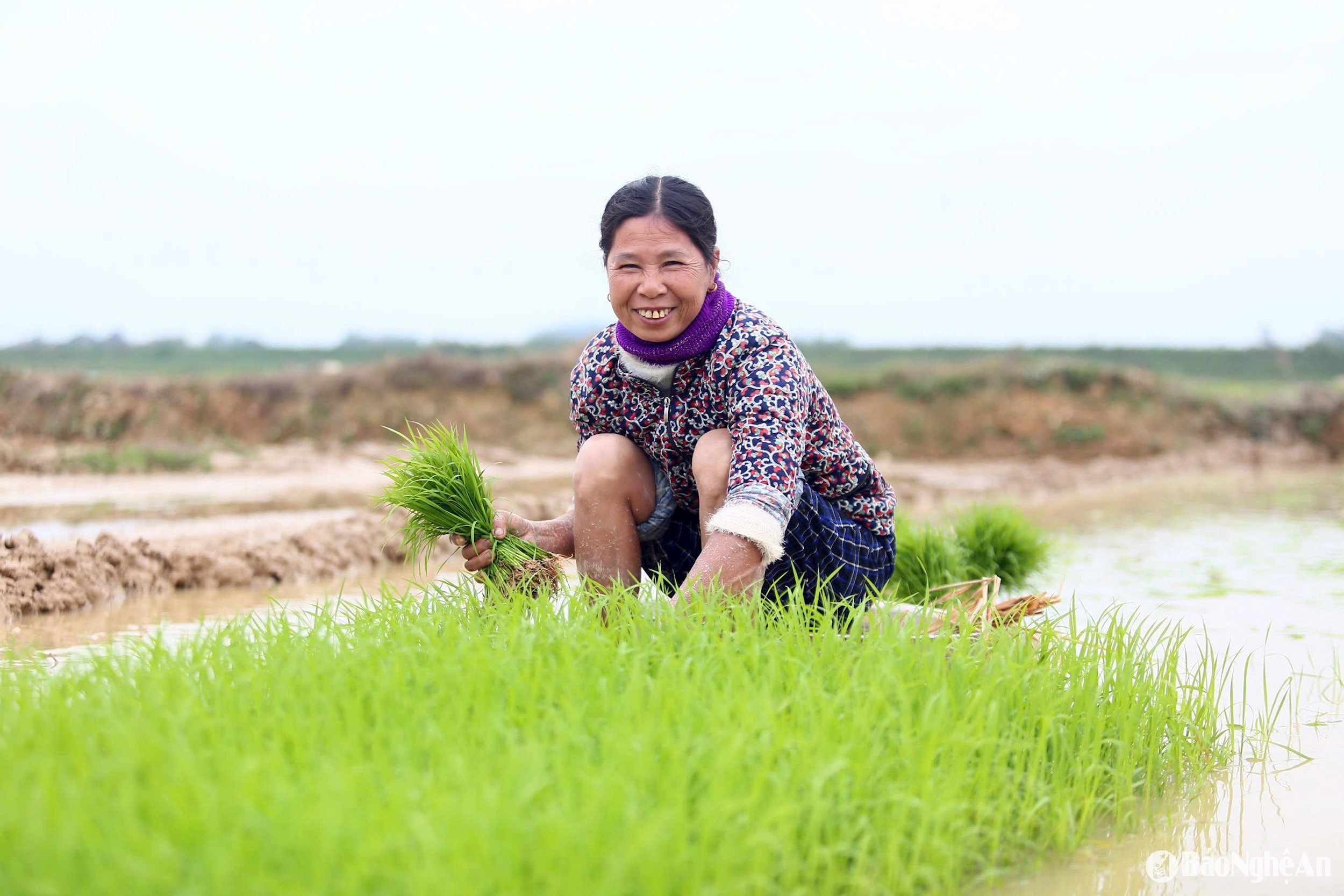
Ms. Phan Thi Giang - Deputy Head of the Department of Agriculture and Rural Development of Hung Nguyen district shared: In the area, in addition to more than 100 hectares of rice land with earthworms in Chau Nhan commune, which is very favorable for developing organic rice production, in other communes, organic rice cultivation will be a new direction that the district is interested in. This spring crop, Hung Nguyen district continues to replicate the model in a number of other communes, thereby gradually creating a new trend in rice production in the area.
New trends in rice production
In recent years, the trend of organic rice production has begun to appear in some localities. Not only does it increase the value of rice production, but more importantly, this production method also contributes to changing farming habits, protecting the environment as well as human health.
Mr. Nguyen Van Duong - Vice Chairman of Yen Thanh District People's Committee said: Since 2021, Yen Thanh has deployed an organic rice production model with an area of nearly 20 hectares in Van Thanh, Lien Thanh and Minh Thanh communes. The fields are less polluted because they do not use chemical fertilizers and pesticides, the products ensure food safety, and the basic productivity is the same as mass, traditional production. In particular, organically produced rice is purchased entirely by the District Agricultural Service Center at a higher price than normally produced rice, thereby building the Yen Thanh rice brand and label to create stable and valuable consumption output.
“Yen Thanh is the only district to date that has been approved by the province to implement a high-tech agricultural production project; and developing and expanding the area of organic rice production, building the Yen Thanh safe rice brand is the goal we are focusing on implementing; it is especially convenient when there is a TH Group rice processing factory in the area,” Mr. Duong shared.
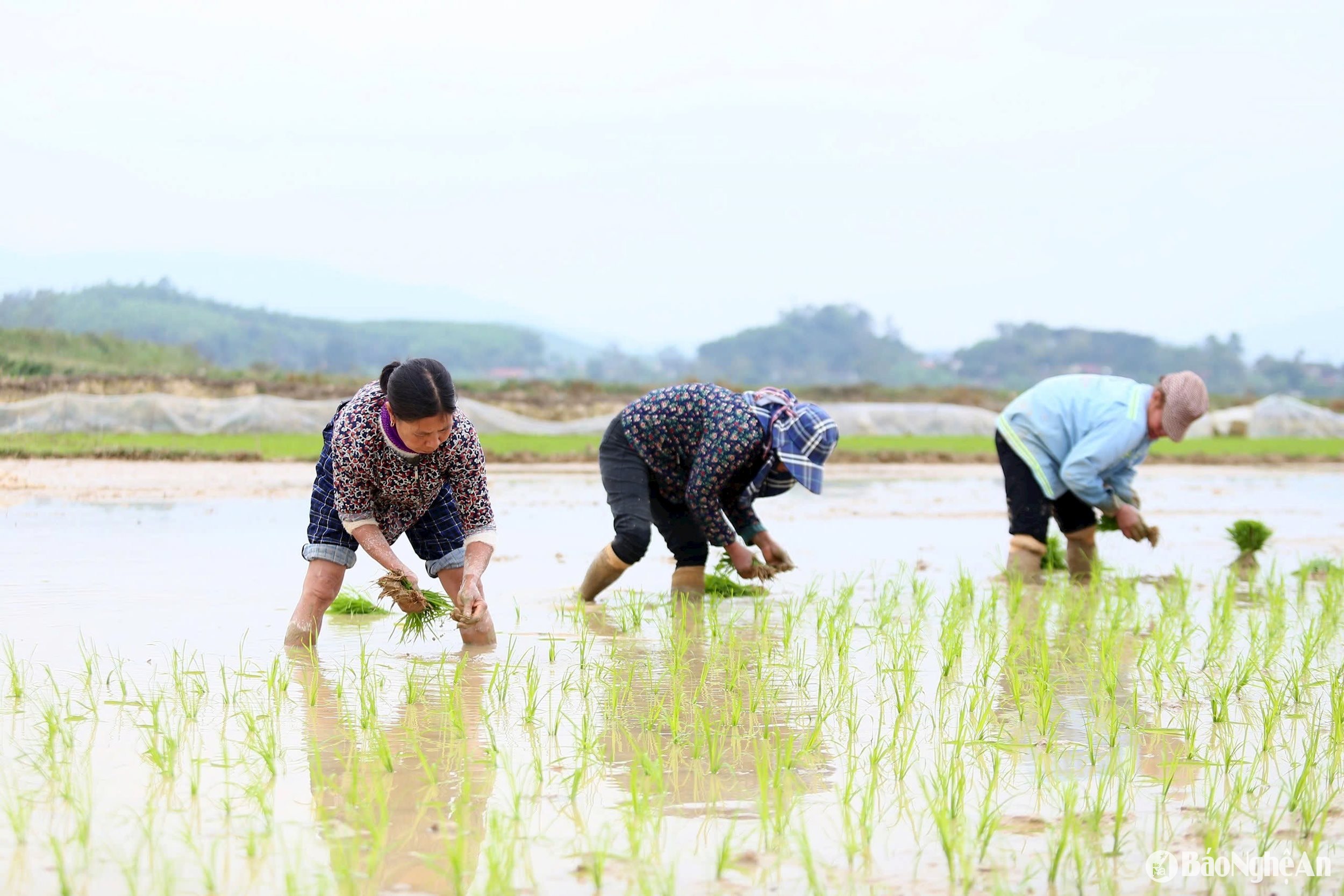
According to Mr. Nguyen Tien Duc - Head of the Provincial Department of Crop Production and Plant Protection: Organic rice production only uses organic microbial fertilizers, organic minerals and biological pesticides, absolutely no chemical fertilizers and chemical pesticides.
Pest management is also carried out according to organic standards, establishing an ecological balance between pests and natural enemies, while applying preventive methods such as choosing the right sowing season, improving soil quality and encouraging natural biological agents. This production method not only requires high technology but also requires a change in farming habits from the farmers - from using chemical fertilizers and traditional pesticides to organic farming.
This spring crop, in addition to Yen Thanh and Hung Nguyen, Nghe An continues to expand the organic rice production model in Nam Dan, Dien Chau and Quynh Luu districts.
According to the Ministry of Agriculture and Rural Development, there are currently 62 localities nationwide converting to organic farming. The total area of organic agricultural land is more than 175,000 hectares, of which 63,536 hectares are for crop cultivation and 100,000 hectares are for organic aquaculture...

.jpg)
